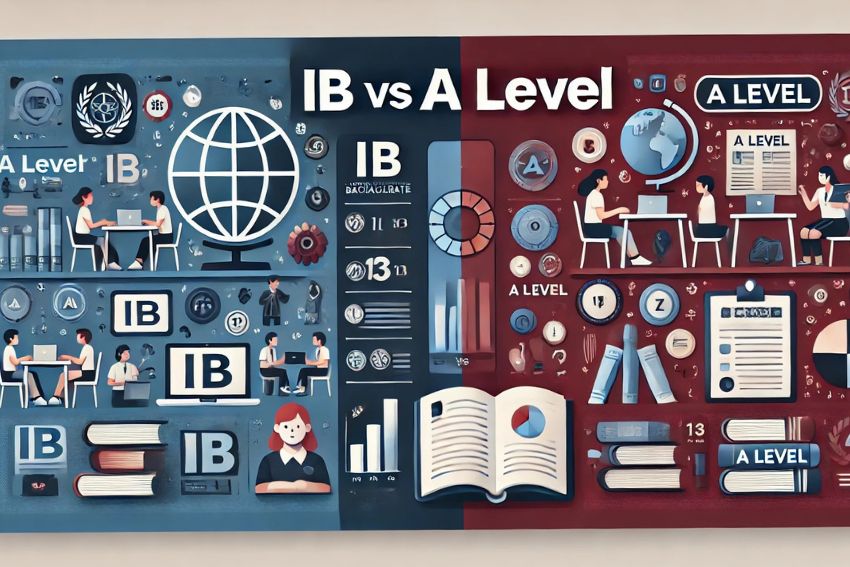GCSE Computer Science is a great subject if you’re curious about how computers work or want to learn how to code. It teaches you the basics of programming, helps you understand what goes on behind the scenes in tech, and builds useful skills.
A lot of students pick it because it’s practical and future-focused. You’ll get to work with real code, learn how systems work, and explore how technology works. And even if you don’t want a tech job in the future, the skills you learn can help you fit in any kind of career.
In this blog, we’ll go through everything step by step, from what topics you’ll study to how to revise and what to expect in the exam. Whether you’ve already chosen the subject or you’re still deciding, this guide will give you everything you need to know.
GCSE Computer Science Topics by Exam Board
The GCSE Computer Science covers similar topics across all exam boards, but each one structures them a bit differently. Whether you’re studying with OCR, AQA, Edexcel, or WJEC, you’ll explore coding, systems and algorithms. Below is a clear breakdown of what each exam board includes:
OCR GCSE Computer Science Topics
OCR splits the course into two papers:
| Paper 1 | Paper 2 |
| System architecture | Algorithms and flowcharts |
| Memory and storage | Programming techniques (mainly using Python) |
| Computer networks | Robust programs |
| Cybersecurity | Logic and truth tables |
| System software and Ethical, legal, and environmental impact | Translators and IDEs |
OCR also has a programming project. It’s not assessed, but you still need to complete it to get experience with real coding tasks.
AQA GCSE Computer Science Topics
AQA divides the content into two sections:
| Paper 1 | Paper 2 |
| Fundamentals of algorithms | Computer systems |
| Programming | Networks |
| Pseudocode and flowcharts | Cybersecurity / Legal and ethical impacts of technology |
| Error handling and logic | Relational databases and SQL |
AQA doesn’t have any coursework or programming project, but coding skills are tested in the exams.
Edexcel GCSE Computer Science Topics
There’s no separate coursework, but you need to be confident with coding for both papers :
| Paper 1 | Paper 2 |
| Data and data representation | Algorithms |
| Computers and software | Programming concepts |
| Networks and cyber security | Problem solving |
| The wider impact of digital technology | Writing and tracing code |
WJEC GCSE Computer Science Topics
WJEC breaks the subject into:
| Unit 1 | Unit 2 |
| Hardware and software | Algorithms and programming construct |
| Data and storage | Programming languages |
| Networks and cybersecurity | Data structures and data types |
| Software development | Security and authentication |
| Legal and ethical issues | Problem solving |
You’ll also complete a non-exam assessment (NEA) based on practical programming. It doesn’t affect your final grade, but it gives you valuable coding experience.
How Is GCSE Computer Science Assessed?
GCSE Computer Science is assessed mainly through two written exams, no matter which exam board you’re with. Each exam usually counts for 50% of your final grade, making up 100% overall.
There’s no formal coursework involved for most exam boards. This means you won’t have to submit a separate project that gets marked. However, coding still plays a big role. Even though it’s not assessed as a standalone task, you’ll be expected to write and understand code in your written exams, so regular programming practice is really important.
If you’re studying with OCR, there’s an extra part of the course called the Programming Project. This is a practical task where you design, write, and test a program. It doesn’t count towards your grade, but your school is still expected to give you the chance to complete it. It helps you apply your programming knowledge in a real, hands-on way and prepares you for the coding parts of the exam.
No matter your exam board, you’ll sit two papers that include both theory and coding questions. To do well, you’ll need to understand computer science concepts and be confident writing code under exam conditions.
GCSE Computer Science Revision Tips
Revising for GCSE Computer Science doesn’t have to be stressful. If you start early and use the right tools, you’ll feel much more confident by exam time. Here are some simple tips to help you stay on track:
1. Start Early
Don’t leave revision to the last minute. There’s a lot of theory to cover, and programming skills take time to build. Give yourself plenty of time to go over each topic and practise regularly.
2. Use Past Papers and Mark Schemes
Past papers are one of the best ways to get used to how questions are asked. Try to complete a few under timed conditions, then check your answers using the official mark schemes. This helps you learn what examiners are looking for and where you can pick up marks. Website: Revision World can help you find past papers in GCSE Computer Science.
3. Practise Coding Little and Often
You don’t need to build a massive program every day. Just practising short bits of Python or solving small problems regularly can make a big difference. The more you practise, the easier it becomes to write and debug code in the exam.
4. Make Flashcards and Mind Maps
For the theory parts, like data representation or computer systems – flashcards and mind maps can help you remember important facts. Try to summarise topics in your own words to make them stick. Website: Quizlet can help you with flashcards.
5. Mix Theory With Coding
Don’t separate your learning too much. For example, when you revise algorithms, write a few lines of code to go with them. It helps you understand how theory links to real programming problems.
A good mix of practise and revision methods can really help. If you get stuck, look at mark schemes, re-watch topic videos, or ask for help. And remember, the more you test yourself, the more confident you’ll feel on exam day.
Is GCSE Computer Science Hard?
Some students find GCSE Computer Science a bit tricky at first and that’s completely normal. It also depends on your interest to the subject, if you’re willing to dive deeper into the subject then it will be much more easier for you.
One of the main challenges is learning to code. If you’ve never done any programming before, writing in Python or solving algorithm problems might feel confusing at first. But with regular practise, it gets easier.
Another part students often find difficult is remembering all the theory. You’ll need to learn how computers work, how data is stored, how networks operate, and more. There’s a lot of detail to understand, but using revision tools like flashcards, mind maps, and past papers can really help.
The good news? You don’t have to be a computer genius to do well. With the right revision habits, a bit of support when needed, and consistent effort, you can definitely succeed in GCSE Computer Science.

What Can You Do After GCSE Computer Science?
Are you wondering what to do after? If you want to continue studying computer science, here is also various options for you:
- A Level Computer Science: Build on what you’ve learned at GCSE with more advanced coding, algorithms, and theory. Great for students aiming for computing-related degrees or careers.
- T Levels in Digital Production, Design and Development: A more practical option that includes real industry experience. Perfect if you want to learn job-ready skills in tech.
- BTECs in IT or Computing: These vocational courses focus on practical skills and can lead to university or apprenticeships in tech.
- Tech Apprenticeships: Earn while you learn. You can go straight into roles like IT support, cybersecurity, or software development and gain qualifications on the job.
As for career paths, GCSE Computer Science can lead to exciting roles in:
- Software development
- Cybersecurity
- Data science
- Artificial intelligence
- Web and game development
Conclusion
In the end, GCSE Computer Science gives you a solid understanding of how computers work, how to code, and how technology shapes the world around us. You’ve now seen how the course is structured across different exam boards, what topics you’ll cover, and how it’s assessed. We’ve also looked at helpful revision tips, the challenges you might face, and the exciting options available after your GCSEs, whether that’s A Levels, T Levels, apprenticeships, or careers.
It’s a subject that’s practical, useful, and full of opportunities. And while some parts may seem difficult at first, but with the right study habits and right support everything is possible.
If you ever need a hand, online tutoring is a great option. At Edumentors, you can find experienced GCSE Computer Science tutors who explain things clearly, help with hard topics, and guide you through past papers and revision. Good luck!
You Might Be Interested In
GCSE Grade Boundaries Explained
What are GCSEs? Everything You Need to Know 2025
What are Your GCSE Subject Options?








